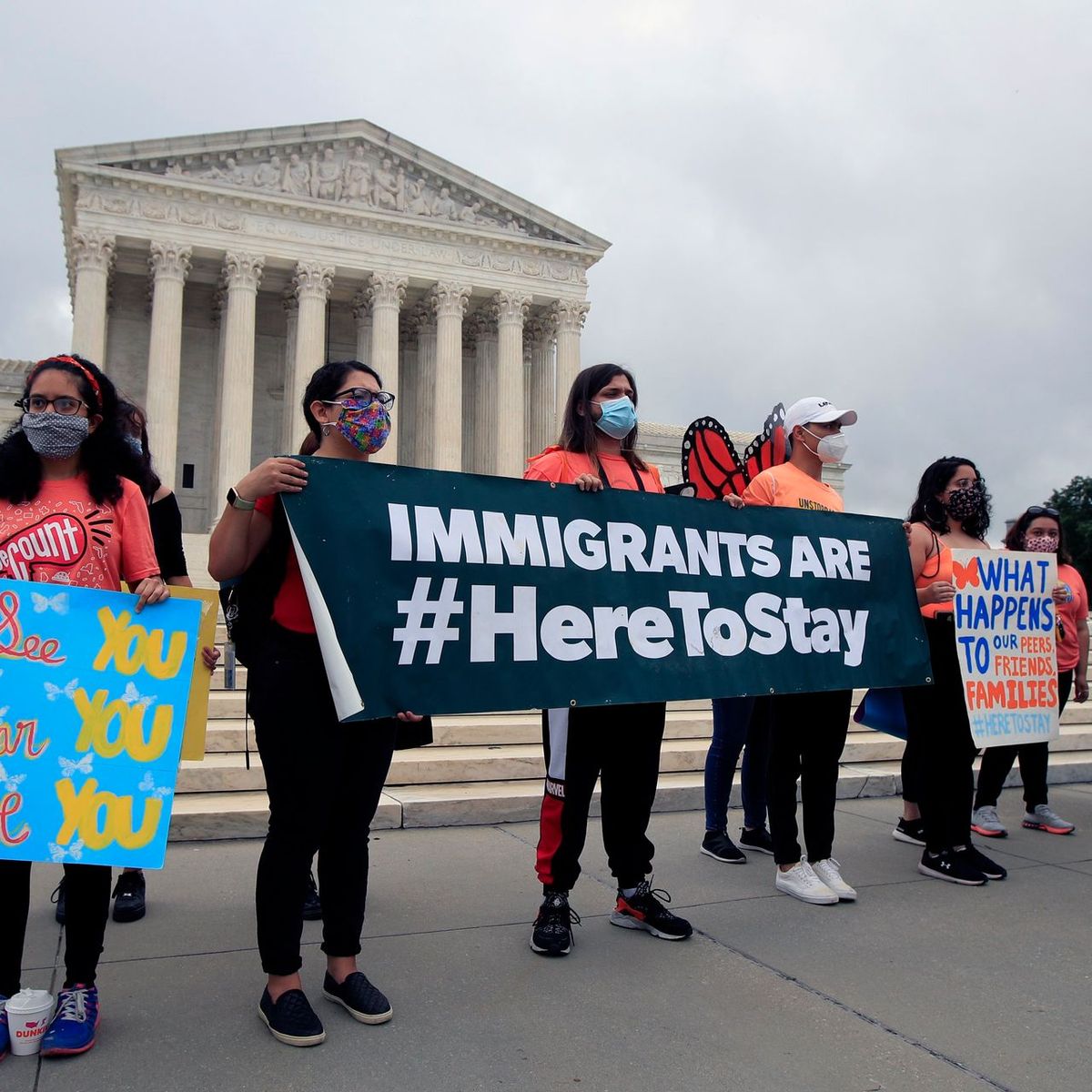US Supreme Court rejects Trump’s attempt to end DACA

A few minutes every morning is all you need.
Stay up to date on the world's Headlines and Human Stories. It's fun, it's factual, it's fluff-free.
On Thursday, the Supreme Court of the United States blocked the Trump administration’s attempt to dismantle the Deferred Action for Childhood Arrivals (DACA) program that protects nearly 650,000 immigrants from deportation.
The Obama-era program was passed in 2012 by direct executive order, after a failed congressional attempt at immigration reform.
The program gave a renewable two-year legal status to individuals, known as DREAMers, brought to the US as children, provided they graduated from high school or were honorably discharged from the military and passed a background check.
However, the program does not provide DREAMers with a path to permanent citizenship in the country.
In 2017, President Donald Trump attempted to revoke the program only to be blocked by the lower courts, and now, the Supreme Court.
The 5-4 ruling was written by Conservative Judge Chief Justice John Roberts Jr. and joined by liberal Justices Ruth Bader Ginsburg, Elena Kagan, Stephen Breyer and Sonia Sotomayor.
Chief Justice Roberts wrote that the Department of Homeland Security (DHS) had not provided appropriate legal justification for ending DACA.
“The dispute before the court is not whether DHS may rescind DACA. All parties agree that it may. The dispute is instead primarily about the procedure the agency followed in doing so. We address only whether the [Department of Homeland Security] complied with the procedural requirement that it provide a reasoned explanation for its action. Here the agency failed to consider the conspicuous issues of whether to retain forbearance and what if anything to do about the hardship to DACA recipients. That dual failure raises doubts about whether the agency appreciated the scope of its discretion or exercised that discretion in a reasonable manner.”
Roberts also wrote that the DHS had failed to consider the economic loss to the US and the recipients of DACA in their attempt to revoke the program.
“Since 2012, DACA recipients have enrolled in degree programs, embarked on careers, started businesses, purchased homes, and even married and had children, all in reliance. The consequences of the rescission, [advocates] emphasize, would ‘radiate outward’ to DACA recipients’ families, including their 200,000 U.S.-citizen children, to the schools where DACA recipients study and teach, and to the employers who have invested time and money in training them. In addition, excluding DACA recipients from the lawful labor force may, they tell us, result in the loss of $215 billion in economic activity and an associated $60 billion in federal tax revenue over the next ten years,” Roberts said.
The Court’s four conservative justices dissented from the ruling.
Justice Clarence Thomas, writing the principle dissent, noted that the court should have recognized that the program was illegal and unconstitutional.
His dissent was joined by Justices Samuel Alito Jr., and Neil Gorsuch.
“In implementing DACA, DHS under the Obama administration arrogated to itself power it was not given by Congress. Thus, every action taken by DHS under DACA is the unlawful exercise of power. Now, under the Trump administration, DHS has provided the most compelling reason to rescind DACA: The program was unlawful and would force DHS to continue acting unlawfully if it carried the program forward.
“Today’s decision must be recognized for what it is: an effort to avoid a politically controversial but legally correct decision. The court could have made clear that the solution respondents seek must come from the legislative branch.”
Conservative Justice Brett Kavanaugh dissented on the grounds that the DHS had provided adequate reasons for ending DACA in 2018, despite not doing so in 2017.
In June 2018, former DHS secretary Kirstjen Neilsen, sent a memorandum to the US District Court of Columbia after it demanded further explanation for rescinding DACA. In addition to highlighting how the unconstitutionality of the program meant that DACA recipients were “illegally present” in the US, Neilson stated that rescinding DACA would allow the DHS to consider Deferred Action for immigrants on a case-by-case basis rather than providing protection to an entire category.
However, Roberts stated that the reasoning had come in too late from the Trump administration.
“An agency must defend its actions based on the reasons it gave when it acted.”
Kavanaugh disagreed, stating in his dissent that the Trump administration shouldn’t have to begin the legal process of appealing for the rescission of DACA again.
In reference to the Supreme Court’s decision on DACA and its June 15 ruling that provides federal protections to LGBTQ workers against workplace discrimination, President Donald Trump tweeted, “These horrible & politically charged decisions coming out of the Supreme Court are shotgun blasts into the face of people that are proud to call themselves Republicans or Conservatives. We need more Justices or we will lose our 2nd. Amendment & everything else. Vote Trump 2020!”
He further asked, “Do you get the impression that the Supreme Court doesn’t like me?”
However, Democratic presidential nominee Joe Biden tweeted his support for the ruling.
“The Supreme Court’s ruling today is a victory made possible by the courage and resilience of hundreds of thousands of DACA recipients who bravely stood up and refused to be ignored. And as President, I will get to work immediately to make it permanent.”
The judges agreed that the Trump administration could restart the process of revoking DACA again by providing adequate legal justification to the Court.
Cornell Law School professor Stephen Yale-Loehr told NPR, “It’s not remotely possible before the election. But if [Trump] is reelected, he almost certainly will try again."
Have a tip or story? Get in touch with our reporters at tips@themilsource.com




Comments ()